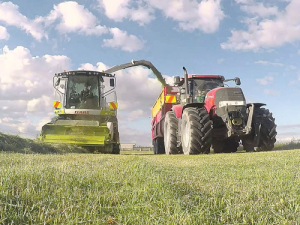The judgement stems from the 2015 Health and Safety at Work Act and gives guidelines to sentencing people found guilty under Section 48 of the Act (failing to comply with a duty and exposing a person to risk of death, serious injury or illness).
A PCBU (person conducting a business or undertaking) has clear responsibilities under the Act. The 2015 legislation covers corporates, sole traders and self-employed, whether profit-intended or non-profit.
In farming that means that any employer or their agents who employ staff are subject to the Act irrespective of the manner or terms of the employment.
The Act requires the PCBU to protect the health and safety of workers or any other workers influenced or directed by the business. That might be a farmer who sends a visiting contractor to work on a dangerous hillside, or the contracting company’s owner for allowing it to happen; both would be in breach of the Act.
As for the duty of care and exposure to risks, the Act covers topics such as lighting, ventilation, dust, heat and noise. The PCBU is also responsible for overcrowding, deadlines, arrangements such as shift-work and rest breaks, fatigue, stress, drugs and alcohol.
In the August 9 ruling, the court agreed with WorkSafe over its application of a four-step plan to address serious breaches of the Act.
Step one: the amount of reparation paid to victims of negligence; step 2 is to determine the amount of the fine placed on the PCBU, considering aggravating and mitigating factors. The starting point of any fine will depend on the culpability of the offender and the gravity of the offending. Low culpability could bring a fine up to $250,000; medium culpability from $250,000 to $600,000; high culpability from $600,000 to $1 million; worse cases $1 million to $1.5m. The court recommends reductions for mitigating factors.
The third step of the process is assessment of any other orders imposed, such as the granting of costs to the regulatory authority.
The fourth stage is a proportionality assessment, where a court will look at the whole sentence, considering reparation awarded, the fine and any other costs to consider whether the cumulative effect is proportionate and appropriate for the circumstances. An offender’s financial circumstances might bring adjustments made up or down.
WorkSafe welcomed the judgement and said the four sentencing bands should deter would-be offendors.
It also agreed with the court that reductions in the penalty are appropriate when offenders have assisted victims of the offending or gone the extra mile to ensure that the underlying cause has been dealt with.









